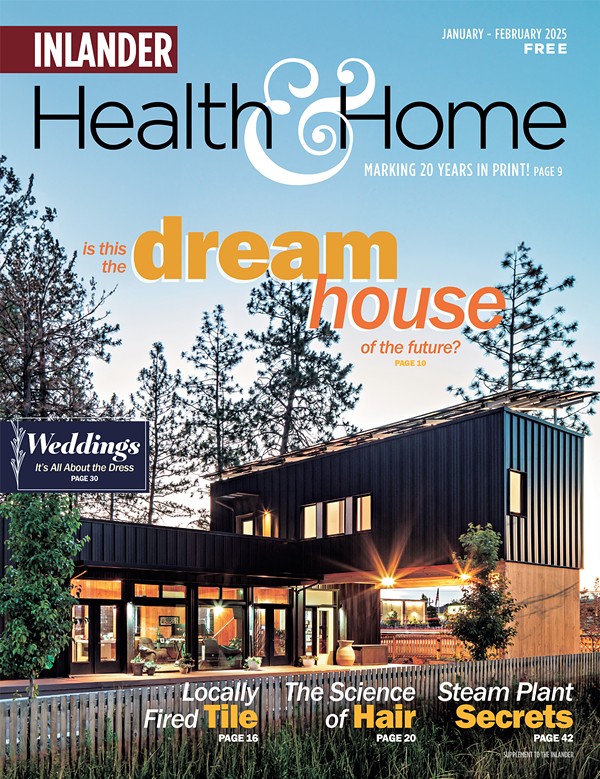When you think of figures on the fringe of society's mainstream, those who swam against the tide, a name like James Dean comes to mind. The image is of society's outsider, a leather-clad rebel who didn't do what others did, and didn't care what others thought. It is unlikely that the name of the composer featured in Allegro Baroque and Beyond's Friday offering, "Confessions of a Rebel: G. Ph. Telemann," would even make the top 20 list of rebels in most people's minds. However, as hard as it is to imagine a composer whose career spanned the baroque period through the dawn of the classical era as being a rebellious figure, Allegro's co-artistic Director David Dutton assures us Telemann fits the bill.
"Telemann was a rebel," Dutton explains. "His parents wanted him to go into law, and he wound up being the most prolific composer of all time."
Indeed Telemann wrote more than 12,000 pieces of music. Jack Phillips and Denis Sutton Utter, of the Civic Theatre, will appear with the musicians to fill in a few of the juicier details from Telemann's own writings.
"We'll be talking about his musical development and giving an overall narrative of what Telemann's life was like," Phillips says. In Telemann's case, that musical development started at a very early age. "It was part of his life from the very beginning," Phillips explains. "He was composing music and playing from the age of 7 or 8."
In fact, that prodigious beginning is exactly what alarmed his parents. "Not only did his family try to persuade him two times to not go into a musical career, they actually forbade him to play music in the house," Phillips says. Ironically, it was one of the tutors Telemann's parents hired that ended up mentoring him and helping him connect music to other areas of learning.
Phillips wonders if much has changed today. "We still have younger people who are interested in the arts who are dissuaded by their parents by pursuing that." Phillips says. "We still don't see a career in the arts as a legitimate career."
Part of Telemann's rebellion was that he proved that he could not only follow his own path, but support himself as well. His business sense and his musical talent worked hand in hand to keep him from being a starving artist. An important part of this was the musical periodical Telemann published, which was the first of its kind.
"People like Bach and Handel subscribed to it," Dutton says. "He was a very good businessman. He would publish the first part of a piece of music, and they would have to subscribe to get the rest of the piece." Phillips says this was a sort of told-you-so strategy. "That's part of being the rebel," Phillips says. "It was a way to fight back and demonstrate that he could make money."
In spite of whatever inspiration or scandal we might find in Telemann's life, it is his music that Allegro will be celebrating. But even there, we find he was on his own path. "While Bach was studying the classical means of making music and elaborating on that, Telemann went to the French means and learned from what, at that time were revolutionary influences," Phillips explains. "It's Telemann that shakes off that musical tradition and begins a whole new way of music and composing."
Allegro's concert will include "Banquet Music, 1733," and one of Telemann's "Parisian Quartets." Two soloists from the Bay area, Anthony Martin on baroque violin and John Dornenburg on viola da gamba, will join Dutton and fellow Artistic Director Beverly Biggs for the concert. One of Allegro's strengths is that they use authentic baroque instruments, and the viola da gamba is an instrument that may be at once familiar and foreign to local audiences.
"It's the predecessor of the cello, but it has frets," explains Dutton. "The cello was coming in during the mid- to late-baroque period."
As for Martin and Dornenburg, Dutton is thrilled to be playing with both performers again. "We've worked with both of them in the past," Dutton explains. "We're all going to play solo pieces, and some trios."
The final piece of the concert is still a mystery, even to Dutton. "When Telemann went to Paris, he wrote these six Parisian quartets," Dutton says. "We're going to end the concert with that, but we don't know which one yet." Whichever one they choose, it is sure to give audiences insight into what set Telemann apart.
"The real core of what we learn and understand about Telemann," says Phillips, "is the music."
"Confessions of a Rebel: G. Ph. Telemann" is at The Met on Friday, March 23, at 8 pm. Tickets: $8-$18. Call: 325-SEAT.
















